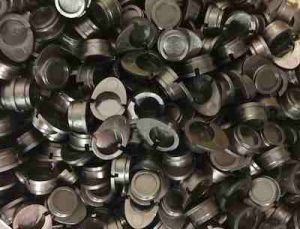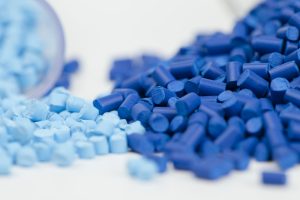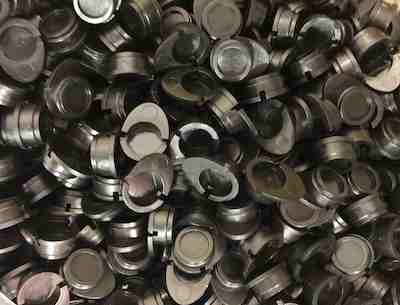Engineering resins are one of two types of plastics commonly used in the injection molding process. Commodity resins (the other common type) are inexpensive and typically used in consumer products like toys, packaging, and food containers. Engineering resins are ideal for use in industrial applications because they are strong and highly resistant to temperature, corrosion, and wear. Engineering resins also have special thermal and mechanical properties that make them useful in replacing wood and metal to save on costs and/or weight.
Abtec, Inc. offers a broad range of different engineering plastic resins that can be used in industrial projects.
Engineering Plastics Available from Abtec
The engineering plastics we offer include:
 Acetal, also known as polyoxymethylene (POM), is a semi-crystalline thermoplastic often used to create precise parts that require high resistances to environmental factors such as heat and abrasion, good dimensional stability, and low friction. Acetal also features a high enough tensile strength that it is useful for replacing metal in some applications. POM is used for applications such as plastic zippers, small gears, medical devices, and consumer electronics.
Acetal, also known as polyoxymethylene (POM), is a semi-crystalline thermoplastic often used to create precise parts that require high resistances to environmental factors such as heat and abrasion, good dimensional stability, and low friction. Acetal also features a high enough tensile strength that it is useful for replacing metal in some applications. POM is used for applications such as plastic zippers, small gears, medical devices, and consumer electronics.
- Polybutylene terephthalate (PBT) is a semi-crystalline polymer with high molecular weight. It has high heat and chemical resistances and favorable electrical properties. PBT features higher flexural, dielectric, and tensile strengths than most other thermoplastics. Glass-filled PBT exhibits 2–3 times as much strength in these same areas.
- Polyethylene terephthalate (PET) is hard, stiff, strong, and dimensionally stable. It features a good resistance to chemicals other than alkalis and exists as both an amorphous and a semi-crystalline thermoplastic material. Semi-crystalline PET features good strength, ductility, and hardness while amorphous PET offers better ductility but less hardness and stiffness.
- Polycarbonate (PC) is a naturally transparent, amorphous thermoplastic. It is available commercially in a wide range of colors, and its polymers are useful in producing materials that require impact resistance and/or transparency. Common applications include plastic lenses in eyewear, automotive components, and exterior light fixtures.
- Polyether ether ketone (PEEK) is a semi-crystalline polymer with good thermal stability due to its high melting point of 300° C. It possesses a high chemical resistance and is created with fiberglass or carbon reinforcements to enhance mechanical and thermal properties. PEEK is non-flammable and has good dielectric properties.
- Polyether imide (PEI) is an amorphous polymer exhibiting high temperature resistance, creep resistance, and rigidity. Since it is non-flammable, resistant to radiation, and easily processed, PEI is approved by the FDA for use in medical and food contact applications.
- Polyethersulfone (PES) and Polysulfone (PSU) exhibit high thermal, oxidative, and hydrolytic stability. These thermoplastics are amorphous, transparent, and can be molded, extruded, or thermoformed into a variety of different shapes. PES and PSU are typically used for internal components in coffee machines, battery containers, and printer cartridges.
- Polyphenylene ether (PPE) has low moisture absorption, giving it good electrical insulating properties over a wide range of temperature and humidity conditions. It also has good resistance to water and most salt solutions. Its applications include food processing, automotive parts, and household appliances.
- Polyamide (Nylon) is a synthetic thermoplastic that can be heated to its melting point, cooled, and reheated again with minimal degradation. Glass-filled Nylon has higher tensile strength but is more brittle than traditional Nylon. Nylon’s wide variety of uses include clothing, toys, and furniture points of impact.
- Polyphenylene sulfide (PPS) is a crystalline material that is highly resistant to temperature, chemicals, and corrosion. It also has high flame retardance, making it common for use in high-temperature electrical applications.
- Thermoplastic elastomer (TPE) is a flexible material that can typically be pulled to at least twice its original length at room temperature. It offers slip resistance, shock absorption, and ergonomic comfort. It can be easily molded onto hard thermoplastic materials, making it ideal for use as a soft touch grip on a product. Other typical applications include sealing rings and bottle cap liners.
- Thermoplastic polyurethane (TPE/TPU) offers the elasticity of rubber and the toughness and durability of metal. It ranges from being very soft and flexible to very rigid. TPU has excellent resistance to abrasion, good performance in low temperatures, and high transparency. Typical uses include automotive interior and exterior parts, hydraulic seals, and medical devices.
Abtec has more than 100 years of experience in injection molding. We are ISO-certified and ITAR/DOD-registered.
If you need custom injection molding involving any engineering resins and/or any commodity resins we work with, please contact us.


